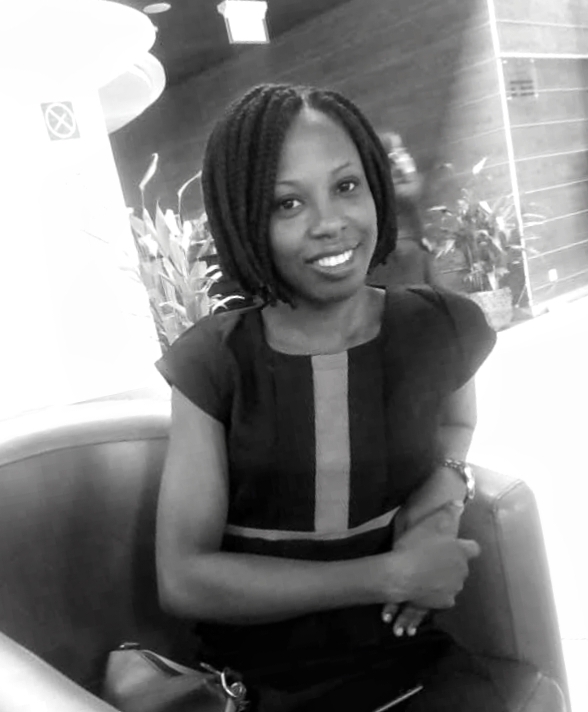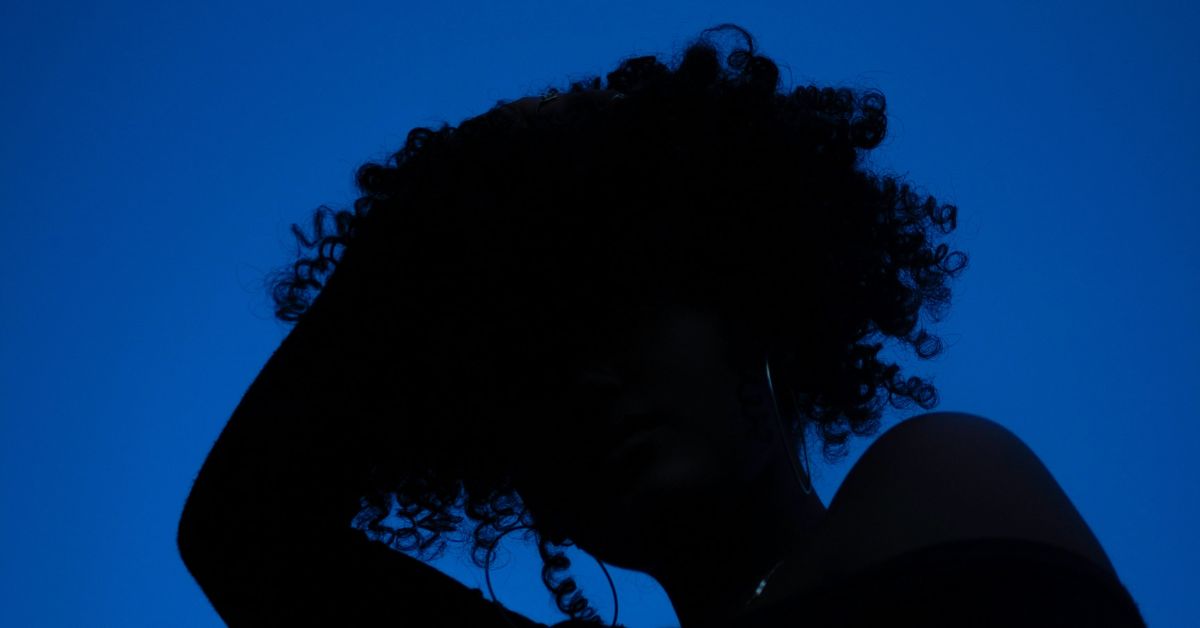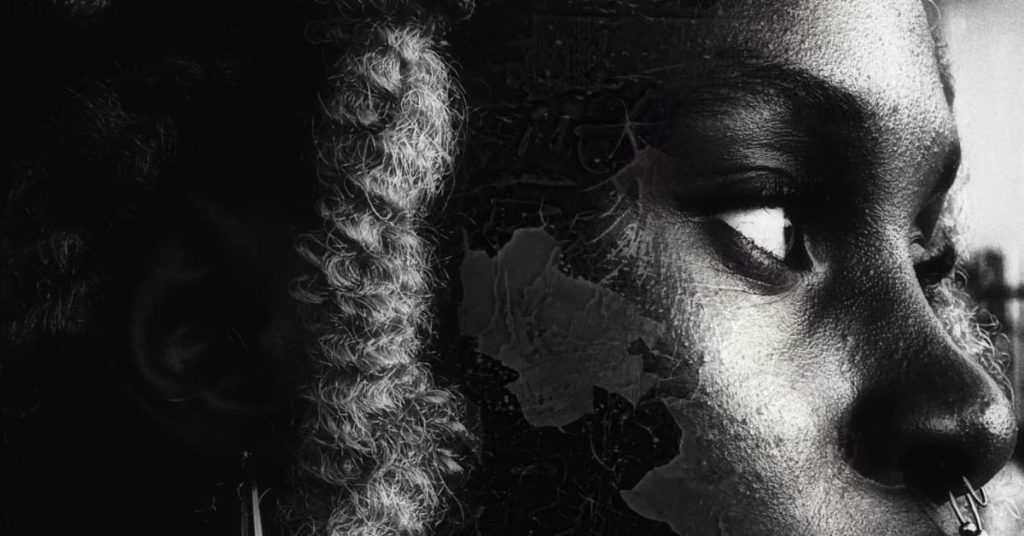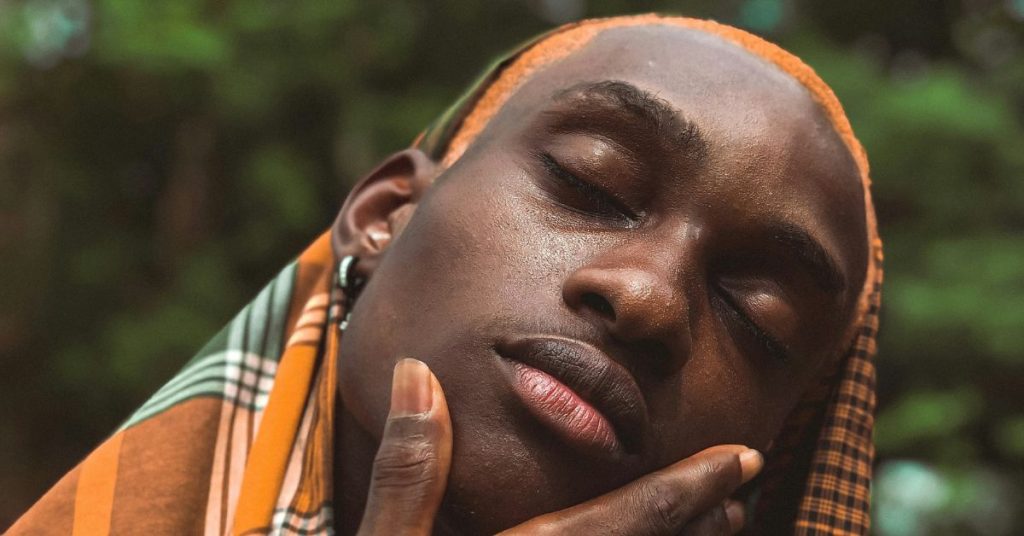The signs of puberty were beginning to shape my features. My breasts were more defined, my jawline was taking on an angular shape, much like my mother’s. I had begun to shed the innocence of a child and wear the experience of an adult. My senses were awakening, having caught the fragrance of budding attraction to the opposite gender. I trailed my hands from my navel to my widening hips, a smile touched my lips at the woman I was becoming. I wondered what my fate would be.
Nature was reckless, it did not listen to my silent plea to remain sheltered in the pod of childhood. I was being pushed open into this brutal world to break it or be broken. I wonder how the women before me felt. Was this how Laraba flinched at the precipice of adulthood? We had joked about her breasts and teased each other when her buttocks started to become rounder like the bulbous root of an onion plant. We often argued about whose red fountain would burst first. I felt she deserved the rite of passage to womanhood before me, she was two years older. It happened just like I had imagined.
According to custom, Mother had gathered all the kids in the town and gave each of them some cheese. Laraba received a double portion because she was the celebrant. When all the kids had left, Mother gifted her long strips of old clothes. ‘You will need this,’ she had said with a smile.
However, our excitement was short-lived. A few days later, a man came to ask for Laraba’s hand in marriage; he already had three wives. Laraba was only twelve years old. Mother was somber, her head bent in defeat. Laraba whimpered and sniffed, looking to Mother for support. None came. This was the reality we had all come to accept, a reality imposed on us by a structure no one dared to rebel against. Anyone who tried to break this yoke from off their neck either suffered a gruesome death or became ostracized, like Kamil, my elder brother, who fled the town after he accepted a strange religion. His name developed a stale flavour on our lips. No one dared to mention him in the presence of father.
History said I had the features of my paternal grandmother: large black eyes and thick full lips, pride in my silky movement and the way I raised my shoulders. Father loved and dreaded me for being a dreamer. In my piercing eyes was a silent determination that he hated. He thought I was brazen – too brazen to be a girl. He scolded me when I sat by the stream and imagined what lay beyond the hill, what it was like to breathe a different kind of air, one not thick with silence and retrogression like these mud houses and milk cows.
All the houses in our town carried a stench of wretchedness in the way their rickety doors hung loosely on their hinges, the absence of burglary proofs, and the mud-stained jute bags draped from their windows. Our house was slightly better than the others; there was a faint touch of modernity in its louvre windows, zinc roofing sheets, and wall plaster that peeled during harmattan to reveal its adobe underlay.
Our rooms were almost bare, like a well-worn mountain path, except for the sleep mats in the corner, laid on top of a wooden box of clothes. Those were our only earthly possessions, aside from Mother’s cooking pots. Everyone lived on the brink of extreme poverty, including those who claimed to be the favorites of the gods.
Perhaps our local herbalist would have been alive if he received prompt medical attention after a strange ailment struck him in the dead of the night and left him motionless. By morning, his leg had swollen and his speech was slurred. There was no car to transport him to the only government hospital which was three towns away.
He died before sunset the following day. Several people had lost their lives to such dire circumstances. There was the case of a pregnant woman who developed complications during childbirth that led to serious haemorrhage. The local midwife was unable to control the bleeding for many hours. Eventually, the woman sailed to the other side leaving behind an infant.
We were separated from the rest of civilization by distance and regional growth. Besides the trucks that came from the big city to buy our farm produce once a month, our roads were mostly idle. We only saw cars during the festive season and an increased frequency when elections drew near. Their occupants werepot bellied men in expensive garb surrounded by fierce, hungry looking louts.
Those men’s shoes shined brighter than our skins. Their wristwatches sparkled like little flashes of light, leaving us in mental confusion as we debated how much they were bought. Mother and I were allowed to peep at them from behind the house when they came to visit, but forbidden from having any interactions with them. Father was the recipient of their magnanimity because he was the chief of our town.
The last elected governor was the one who donated the white cart; a rickety three-wheeled contraption shaped like a wheelbarrow. This cart was used to transport the sick and aged whenever the need arose. A week before his election, we had queued in excitement in front of the campaign bus to receive gifts like we were promised. After standing under the sun for several hours, while he read his boring speech, we were given small polythene bags that contained a pen, notebook and two cups of rice.
Today was another election day and power had been handed over to us again. Our fate was in our hands like a high priority document waiting for our stamp of approval. There was a loud bang on the door followed by retreating footsteps. I shifted back from the mirror, pulled a veil over my head and stepped out of the room before Father sent someone else to bang on the doors for the second time.
The air hummed with the mingled voices of men and women, their chatter rising like a restless tide. A crowd had begun to gather in front of our house, their shadows stretching long in the afternoon sun. A white canopy tent stood like a sentinel in the middle of the street, sheltering a plastic table cluttered with papers and half-empty water bottles. Around it, plastic chairs creaked beneath the weight of government officials in stiff shirts and serious faces. My father sat among them calm, composed, as though he belonged to their world more than ours.
Two long queues had begun to snake their way into the distance like rivers of patience beneath the sweltering sun. There was one for the men and the other for women and children. Everyone had a voter’s card. I took my position behind a little girl who flashed her brown teeth at me and showed me her voter’s card as though she was holding a ticket to heaven. I smiled in return.
There were bundles of ballot papers on the table and a transparent plastic bucket that served as a cheap replacement for a ballot box. The sun was already at its peak and it was just ten in the morning. The stench of sweat drifted from unwashed armpits, curling into the warm air around me. I stamped my foot to ward off a housefly trying to perch on my leg. It fluttered away and lingered on the open wound of an elderly man on the other queue. He didn’t seem to notice or he just didn’t care. I wrinkled my nose in disgust as the housefly shot into the air like a catapult and landed on the lips of a child who was sleeping on its mother’s back.
The electoral officer bellowed above the noise of the crowd to announce the commencement of the voting exercise. We shuffled along under the heat of the sweltering sun.
My gown was beginning to dampen with moisture, the silk plastered to my back like a husk wrapped around a cob of corn. I wiped the beads of sweat forming above my brows and waited my turn. I saw one of the officials bend close to whisper into Father’s ears. The latter rose up and started walking down the queue. He pointed at a girl and ordered her to stand aside. He picked three young men, and me, and told us to follow him. It was only then that I noticed another tent in the distance. We hurried down the untarred road and stopped short at the tent. An electoral officer sat on a plastic chair. He stood as we approached and began arranging the bundle of ballot papers into sections. I noticed empty plastic chairs near the table. There was no queue here, unlike at the other tent.
“Can these ones read and write?” The man swept his gaze over us, assessing our appearance from head to toe.
Father nodded quickly, his lips curved upwards into a smile.”Yes. They attend the local school. This one is my daughter. Her teachers said she is the most brilliant in her class.”
The man snorted, muttering incoherent words under his breath. There was contempt written all over his face.
Father was right. I knew the alphabet and had also started learning how to identify shapes. My quest for knowledge was why my teachers were fond of me. Unlike other students who attended school at their convenience, I never missed a class. I wanted to be able to speak English like those Lagos women the traders often talked about.
The man gestured at us to come closer. We huddled around him to watch what he did. He explained our task in simple terms. There were columns on each ballot paper. Each of the political parties had their icon in front of the columns. All we had to do was print our thumbs on the elephant icon beside the third column.
No one asked questions. No one needed to. The heat bore down on us, and the promise of a few crisp naira notes hovered like shade on a dry afternoon.
The whole voting exercise lasted less than six hours. After we were done, two hundred naira was given to each person. We waved, grinning,and watched the officers drive away in their campaign buses raising a cloud of dust behind them.
2
The sun had begun to make its descent. I hurried out of the back door into the arms of the cold evening. The mud houses gave way to thick vegetations as I wandered down winding paths inhaling the wild scent of shrubs and plants. We were approaching the harvest season. Some of the corns had begun to droop under the weight of their bountiful tidings. A rodent dashed across me in a flash. It paused to sniff the stalk of a melon plant creeping along the path and disappeared into the adjoining bush.
I turned around and waited to be sure I was not being followed. There was no one in sight. I turned left and started down an isolated trail until I burst upon a small clearing. Standing there was Kamil, my brother. His lips turned upwards into a smile. He held out his hands to me. This was the second time I was meeting him since he was chased out of our town. The first time was the previous day when he disguised as a veiled woman to meet me at the stream. He was an outcast to us now. Father had tried to behead him after he denounced his faith and followed the “foreign” God.
Kamil had found a job at the cement factory in Lagos. He was taller and wiser now. His beards were neatly trimmed. His dark skin shimmered under a clean pair of trousers and white shirt. I could have mistaken him for a school teacher. Kamil pulled me into an embrace again and guided me to sit on the dead stump of an iroko tree. He wanted to know all about each member of the family. His face fell when I talked about home, in his eyes there was a longing for what used to be. He listened in silence as I recounted the details of Laraba’s marriage. I told him how quiet she had become, how her laughter, once loud and reckless, now came in soft, measured tones. Sometimes I wondered if part of her had been buried with her childhood, along with the last cloth Mother gave her. He shook his head, pulled his brows into a frown and sighed each time I mentioned Mother’s complacence through it all. He took my hand in his and told me not to despise our mother for her weakness. “There is nothing she could have done. You know she also had a similar experience”
I shook my head in defiance. “Then why didn’t she say No. She should have resisted.”
Kamil flashed me a smile and playfully tapped my head. “Still causing trouble aren’t you?”
I laughed and folded my hands, taking a moment to admire the henna tattoo on the back of my palms. “ What does Lagos look like?”
“Lagos is freedom. It is a place of opportunity and results.”
He talked about all the cars, wide tarred roads, busy markets and large, modern houses–far larger than all our houses put together. I heard traders talk about Lagos very often, but none as detailed as Kamil’s exuberant recount of the city. He mentioned the government schools where students were provided access to quality education and prepared for the future. My eyes widened when he mentioned the large network of roads, buses and trains, and how easy it was to go from one place to the other.
I sighed in despair. My eyes filled with sadness for how fate had tossed me into a life I did not desire or choose.
“Now that Laraba is married, you are next. I wonder if you will be at your husband’s house by the time I return.”
“When are you leaving?” Tears rolled down my cheeks, blurring my vision for an instant. I wiped them with the edge of my veil and closed my eyes as though that would save me from this evil reality.
“The trucks are loading at the market and heading for the city tonight. I will go back with one of them and board a train to Lagos tomorrow evening.”
My words were swallowed by sobs as I urged him to save me from my predicament. “I don’t want to stay here anymore. I want to go to Lagos. Take me with you.”
“I can not take you with me. I am barely surviving there too. How will I be able to take care of you? The time is not right,” Kamil bowed his head like a man tortured by the weight of his own burdens.
There was a slight quiver in his voice. I could hear the pain that accompanied each word. He was just as helpless as I was.
I nodded in response and bit my lips to hold back the tears that had formed tiny creeks down my cheeks. For a moment, I hated Kamil for leaving, for returning, for showing me a world I couldn’t touch. Then I hated myself for still hoping.
Kamil rose to his feet, took my hands in his and squeezed them tightly “It is getting dark. You should return home now before they start looking for you”
I nodded again.
He pulled me into a long embrace. “Take care of yourself and Mother”
I turned to walk away. Every step towards home was a step away from my happiness. My heart ached for all the days I soared on the wings of hope to a future that seemed bright. I thought that one day, I would have a chance to chase after destiny with every breath I had. Fate had written our stories long before our birth but history would tell our stories that we fought long and hard.
3
Crickets chirped like a chorus of rusted hinges in the distance. There were few stars in the sky tonight. The trees cast an eerie shadow in the distance under the soft gleam of the moonlight. A sudden jolt followed by convulsive jerks made me reach out my hands to an iron bar for support. I could tell that we were moving up a hill. The heavy sacks of onions pressed hard against me from all sides. I wondered which of the trucks Kamil had boarded. I wondered how many other people had also left with these trucks. Mother will wake up in the morning to find out that I am gone. I hope she understands. I hope she forgives me. Perhaps one day, she will realize that I was never meant to stay. I will return, not as a daughter bound by duty, but as a woman who wrote her own story. The road is long, but it is mine now.

Titilayo Matiku is a doting auntie who enjoys spontaneous conversations with her nieces and nephews. When she isn’t day dreaming about an ideal world, she uses her pen to rewrite perspectives, one story at a time. Her works are featured in The Shallows Tales Review, Voyage of 90 years with Kongi, Umuofia Books and Arts Festival, PFPOI, Black glass pages, Mouthful of Salt, Paddler press and forthcoming in other publications. She dreams of having a family and also raising a macaw, a cockatoo and a grey parrot someday. She tweets @titilayodm
Because great writing shouldn’t be hard to find. Subscribe to get the best reads in your inbox.




